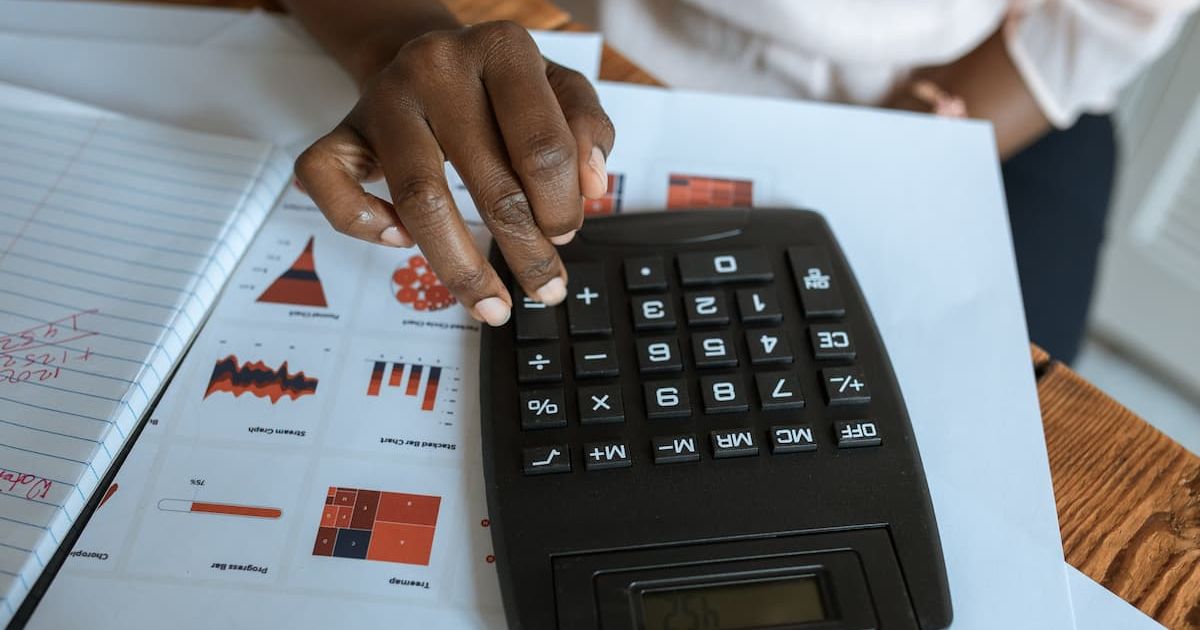

Finance
How To Trade In A Car With Bad Credit
Modified: February 21, 2024
Learn how to trade in a car with bad credit and get the financing you need. Increase your chances of approval with our expert finance tips.
(Many of the links in this article redirect to a specific reviewed product. Your purchase of these products through affiliate links helps to generate commission for LiveWell, at no extra cost. Learn more)
Table of Contents
Introduction
Trading in a car with bad credit might seem like a daunting task, but it is not impossible. While having bad credit can make financing a new car more challenging, there are steps you can take to navigate the process successfully.
When you have bad credit, it’s important to be prepared and informed before approaching a dealership. Doing your research and understanding your options will empower you to make the best decisions for your financial situation. This article will guide you through the steps to take when trading in a car with bad credit.
Assessing your current financial situation is the first step. Take a look at your credit score and understand how it is affecting your ability to obtain financing. Knowing your credit score will help you understand what to expect when negotiating with the dealership.
Next, research and gather information about the car you want to trade in. Determine its current market value and any potential issues that may affect its trade-in value. This knowledge will enable you to enter negotiations with confidence.
Exploring financing options is crucial when you have bad credit. Traditional lenders may not be as willing to provide loans, but there are alternative financing options available. Research lenders who specialize in working with borrowers who have bad credit or consider getting pre-approved for financing before approaching a dealership.
Improving your credit score is a long-term strategy that can benefit you in many ways, including when trading in a car. By paying your bills on time, reducing your existing debt, and using credit responsibly, you can gradually improve your creditworthiness and increase your chances of securing favorable financing terms in the future.
When negotiating with the dealership, it’s essential to be assertive and prepared. Research the value of your trade-in vehicle and be ready to negotiate the best deal possible. Be open to alternative options, such as leasing or buying a used car, as they may provide more flexibility when trading in with bad credit.
Remember, trading in a car with bad credit requires patience and persistence. While it may be more challenging, it is not impossible. By following the steps outlined in this article and staying informed, you can successfully navigate the process and trade in your car, even with bad credit.
Assess Your Current Financial Situation
Before trading in a car with bad credit, it’s essential to assess your current financial situation. Understanding your credit score and how it impacts your ability to obtain financing will help set realistic expectations and guide your decision-making process.
Start by obtaining a copy of your credit report from the major credit bureaus. Review the report carefully to ensure its accuracy and identify any potential errors or discrepancies. If you find any inaccuracies, you can dispute them with the credit bureaus to have them corrected.
Next, examine your credit score. Lenders use credit scores to determine your creditworthiness and the interest rates you may be offered. A low credit score can make it more challenging to secure favorable financing terms. Generally, a credit score below 600 is considered bad credit.
Take some time to understand what factors contribute to your credit score. Late payments, high credit card balances, and a history of missed payments can all negatively impact your credit. By identifying areas for improvement, you can begin to take steps to strengthen your credit profile.
In addition to your credit score, consider your overall financial situation. Assess your income, monthly expenses, and any outstanding debts. Understanding your financial obligations will give you a clearer picture of what you can afford when trading in a car.
It’s also important to determine the equity in your current vehicle. If you owe more on your car loan than the car is worth, you may have negative equity, also known as being “upside down” on your loan. Negative equity can be a challenge when trading in a car, especially if you’re looking to purchase a new vehicle.
Lastly, evaluate your budget and determine how much you can comfortably afford for a new car payment. Consider not only the cost of the vehicle, but also factors such as insurance, maintenance, and gas. It’s crucial to ensure that the new payment will fit within your budget without causing financial strain.
By assessing your current financial situation, you’ll have a clear understanding of your creditworthiness, equity in your current vehicle, and what you can afford for a new car. This knowledge will empower you during the negotiation process and help you make informed decisions when trading in a car with bad credit.
Research and Gather Information
When trading in a car with bad credit, it’s essential to research and gather information about the car you want to trade in, as well as potential financing options. Being well-informed will give you a better understanding of your vehicle’s value and help you explore alternative financing options that may be available to you.
Start by researching the current market value of your car. Websites like Kelley Blue Book or Edmunds can provide an estimate of your vehicle’s worth based on its make, model, year, mileage, and overall condition. Knowing the approximate value of your car will give you a baseline for negotiations.
It’s also important to consider any factors that may affect your car’s trade-in value. For example, if your vehicle has mechanical issues, body damage, or is in need of repairs, it may lower its value. Be honest with yourself about the condition of your car and take it into account when considering trade-in offers.
Additionally, gather information on the financing options available to you. Traditional lenders may be less willing to provide loans to individuals with bad credit, but there are alternative financing options to explore. Research lenders who specialize in working with borrowers who have bad credit. These lenders may be more flexible in their loan requirements and offer more favorable terms.
Consider getting pre-approved for financing before approaching a dealership. Pre-approval can give you a clear idea of the loan amount and interest rate you may qualify for, allowing you to set a realistic budget and negotiate confidently.
As part of your research, compare interest rates and terms from different lenders. Look for loans with reasonable interest rates and manageable monthly payments. Remember to factor in the total cost of financing, including any fees or charges, to make an informed decision.
Finally, educate yourself on any special promotions or incentives that may be available for individuals with bad credit. Some dealerships or lenders may offer deals or programs specifically designed to help individuals with lower credit scores. Take advantage of these opportunities to secure more favorable trading and financing terms.
By researching the value of your vehicle, understanding its condition, and exploring different financing options, you’ll be equipped with valuable information when trading in a car with bad credit. This knowledge will help you negotiate effectively and make informed decisions that align with your financial goals.
Explore Financing Options
When it comes to trading in a car with bad credit, exploring financing options is crucial. While traditional lenders may be less willing to provide loans to individuals with bad credit, there are alternative financing options available that can help you secure a loan and purchase a new vehicle.
Start by researching lenders who specialize in working with borrowers who have bad credit. These lenders understand the unique challenges faced by individuals with low credit scores and may be more flexible in their loan requirements. They may also offer more competitive interest rates and terms compared to traditional lenders.
Consider applying for a loan through online lenders or credit unions as well. These institutions tend to have more flexible lending criteria and may be more willing to work with borrowers who have bad credit.
It’s also beneficial to get pre-approved for financing before visiting a dealership. Pre-approval involves providing your financial information to a lender who will then determine the loan amount and interest rate you may qualify for. This step allows you to establish a budget and negotiate with confidence when trading in a car.
Another financing option to consider is a co-signer. A co-signer is someone with good credit who agrees to take responsibility for the loan if you are unable to make payments. Having a co-signer can increase your chances of securing a loan and may even help you obtain more favorable interest rates.
Additionally, explore the possibility of a lease. Leasing a car can be a viable alternative to purchasing if you have bad credit. Lease agreements typically have lower monthly payments and may require a lower credit score threshold compared to auto loans. However, keep in mind that you won’t own the vehicle at the end of the lease term.
While exploring financing options, be mindful of any potential scams or predatory lending practices targeting individuals with bad credit. Beware of lenders who promise guaranteed approvals or excessively high interest rates. Do thorough research and read customer reviews to ensure you’re working with a reputable lender.
Ultimately, by exploring various financing options and understanding the terms and conditions associated with each, you can choose the option that best fits your financial situation and allows you to trade in a car with bad credit.
Work on Improving Your Credit Score
While trading in a car with bad credit can present challenges, it’s important to work on improving your credit score. Improving your credit score not only increases your chances of securing more favorable financing terms but also opens up more options for future financial endeavors.
Start by reviewing your credit report and identifying any areas that need improvement. Look for any late payments, collections, or other negative items and address them. Consider setting up payment reminders or automatic payments to ensure you make all your payments on time.
Reducing your existing debt can also have a positive impact on your credit score. Create a debt repayment plan and focus on paying off high-interest debts first. This will not only improve your credit utilization ratio but also demonstrate responsible financial management to potential lenders.
Another strategy is to diversify your credit mix. If your credit history consists solely of credit cards, consider adding other types of credit, such as a personal loan or car loan. This shows lenders that you can handle different types of credit responsibly.
Be cautious about opening too many new credit accounts, as this could negatively impact your credit score in the short term. Each time you apply for new credit, it results in a hard inquiry on your credit report, which can lower your score slightly. Only apply for credit when absolutely necessary.
Consider becoming an authorized user on someone else’s credit card with a good payment history. This allows the positive payment history to be reflected on your credit report and can help boost your credit score.
Patience is key when it comes to improving your credit score. It takes time to rebuild credit, so be consistent with your efforts and maintain responsible financial habits. Avoid any new negative marks on your credit report and focus on gradually improving your creditworthiness.
Remember, improving your credit score is a long-term goal that will benefit you beyond just trading in a car. A higher credit score can open doors to better loan terms, lower interest rates, and more financial opportunities in the future.
By working on improving your credit score, you not only enhance your chances of secure better financing options when trading in a car but also set yourself up for a stronger financial future.
Negotiate with the Dealership
When trading in a car with bad credit, effective negotiation with the dealership is crucial. Through strategic communication and research, you can maximize the value of your trade-in and secure the best possible financing terms.
Start by researching the value of your trade-in vehicle. Use online resources such as Kelley Blue Book or Edmunds to get an estimate of its worth based on factors such as make, model, year, mileage, and condition. Armed with this information, you’ll have a better understanding of what your trade-in is worth in the current market.
Before speaking with the dealership, set a realistic target price for your trade-in vehicle. Aim to negotiate for a price within that range, taking into account any additional repairs or maintenance that may be needed.
During the negotiation process, be assertive and confident. Highlight the positive aspects of your trade-in, such as low mileage or recent maintenance records. It’s also important to remain flexible and open to different offers from the dealership.
Consider bringing along a trusted friend or family member to provide a second opinion and support during negotiations. Having an advocate on your side can help ensure that you get a fair deal.
Keep in mind that trade-in value is just one aspect of the negotiation. Pay attention to the financing terms being offered by the dealership. Be prepared to negotiate the interest rate, loan term, and monthly payment to ensure they align with your financial capabilities.
If the dealership offers you a higher interest rate or less favorable loan terms due to your bad credit, consider getting pre-approved for financing beforehand. This allows you to present the dealership with alternative options and potentially negotiate better terms.
Remember that not all dealerships will be willing to work with individuals with bad credit. Don’t hesitate to shop around and explore different dealerships to find one that is more accommodating and understanding of your situation.
Lastly, carefully review all the paperwork before signing any contracts. Ensure that you fully understand the terms and conditions of the trade-in and financing agreement. If something seems unclear or you have concerns, ask for clarification or seek advice from a trusted professional.
By negotiating effectively with the dealership, you can get the best possible value for your trade-in and secure financing terms that work for your bad credit situation. Be prepared, confident, and proactive throughout the negotiation process to achieve a successful outcome.
Consider Alternative Options
When trading in a car with bad credit, it’s important to consider alternative options that may provide more flexibility and better suit your financial situation. Exploring these alternatives can open up new possibilities for acquiring a vehicle despite your credit challenges.
One alternative option to consider is leasing a car. Leasing allows you to drive a new vehicle for a fixed period, typically two to three years, with lower monthly payments compared to purchasing. Leasing can be a viable solution for individuals with bad credit because lease agreements often have lower credit score requirements.
Another option is to consider buying a used car. Used cars generally have a lower price tag than brand-new vehicles, which can make them more affordable, even with bad credit. By purchasing a used car, you may have more flexibility in negotiating with the seller and securing financing.
In addition to leasing and buying used, you may also explore the option of taking over someone else’s lease. Lease assumption or lease transfer allows you to take over the remaining lease term of a current lessee. This can be beneficial if the individual leasing the car has already gone through the initial depreciation stage, resulting in lower monthly payments for you.
If financially feasible, you can also consider saving up for a larger down payment. A larger down payment reduces the total amount you need to finance, making it more likely to secure a loan despite your bad credit. A substantial down payment showcases your commitment and lowers the risk for lenders, increasing the chance of approval.
Additionally, it’s worth exploring the possibilities of working with buy here pay here dealerships. These dealerships specialize in providing in-house financing to individuals with bad credit. While this may not be the most ideal option due to potentially higher interest rates, it can be a viable solution if you’re unable to secure financing elsewhere.
Lastly, consider improving your credit score through responsible credit management. Focus on making on-time payments, reducing your outstanding debt, and handling credit responsibly. By actively working towards improving your credit score, you can broaden your options for future vehicle purchases.
Ultimately, by considering alternative options such as leasing, buying used, or saving for a larger down payment, you can still acquire a vehicle despite your bad credit. Explore these alternatives and make an informed decision that aligns with your financial goals and circumstances.
Conclusion
Trading in a car with bad credit may come with its challenges, but it is certainly not impossible. By following the steps outlined in this article, you can navigate the process with confidence and increase your chances of a successful trade-in.
Assessing your current financial situation is crucial before embarking on the trading process. Understand your credit score, evaluate your budget, and determine the equity in your current vehicle. This knowledge will guide your decision-making along the way.
Research and gather information about your trade-in vehicle and potential financing options. Knowing the value of your car and exploring alternative lenders will help you negotiate effectively and secure the best deal possible.
Working on improving your credit score is a long-term strategy that can benefit you beyond just the trading process. Practice responsible credit management to gradually rebuild your creditworthiness, opening up more opportunities in the future.
When negotiating with the dealership, be assertive, well-prepared, and open to alternative options. Research the value of your trade-in, negotiate the best price, and carefully consider the financing terms being offered.
If necessary, consider alternative options such as leasing a car, buying used, or exploring buy here pay here dealerships. These alternatives can provide more flexibility and better suit your financial situation.
In conclusion, while trading in a car with bad credit may require more effort and research, it is still achievable. By being proactive, well-informed, and open to exploring different options, you can successfully trade in your car and move forward with your transportation needs.
Remember, patience is key in the process. Focus on improving your credit score, diligently research your options, and don’t settle for less than what you deserve. With determination and perseverance, you can overcome the challenges of bad credit and find a car that meets your needs.














